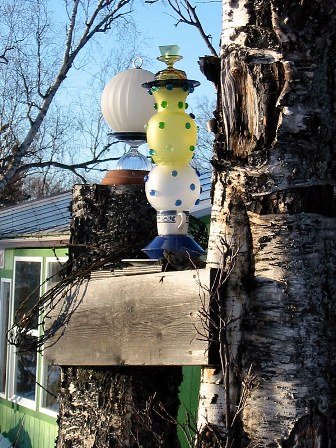
The late E.F. Schumacher, economist and author of Small is Beautiful, would’ve been tickled to hear that we need to start thinking small if we want to change the big picture. Of course, people don’t like change very much; they like to preserve things, to keep things as they remember them. Yet, change is such an elemental part of the universe. A small change can be quite devastating or it can make a whole new world depending on your perspective. Of course, it’s the big changes that get all the media attention and the red carpet into our anxieties about the future and our place in the order of things. The big changes are surprisingly reliant on the incremental effects of small changes, however.
Global warming. Climate change. Call it what you will, it is happening. Even the Governor says so. ‘Isn’t it a natural cycle?’ you say. Yes, some of it is. Maybe a lot of it is. But, it’s the little things that add up that can push nature over the edge. We’re the little things, and we’re pushing as hard as we can. We’re a very successful little critter in the grand scheme of things. We have natural cycles, too. Our civilizations start as tiny villages, grow up to be cities, outgrow the available resources, and then - they crash. Archaeologists and historians have been making a good living off these successful extinctions for years. While change is necessary to growth and success, we are rapidly becoming too successful for our own good.
What’s this got to do with gardening? Both McKibben and Goodall suggest that we need to change to thinking in ‘local’ terms about our economies and daily activities. Goodall points out that a major source of the world’s carbon emissions, the stuff that’s helping climate change along, is produced by the world’s food industry. It takes tremendous amounts of fossil fuels to power farms and make fertilizer to grow our food, to process food, transport and store food, and to transport folks like us driving off to the store to buy all this stuff. Add in the steel and iron used, methane from the dairy industry, carbon dioxide from intensive farming techniques, and you leave a large carbon footprint on the earth.
Interestingly, Goodall notes that you produce less carbon if you drive your car to the market to buy a bag of locally grown organic carrots than you would if you walked to the same store to buy a granola bar bought from a California-based company.
What can you do? Buy local whenever possible, which means supporting our local farmers and nurseries. Are your local nurseries growing their own plants from seeds, cuttings and divisions, or tiny plugs; the smallest units they can ship in? Big box stores ship in weighty pots of ‘retail ready’ plants that are part of the larger carbon emissions problem. And, while these plants are cheaper than those from smaller nurseries, they are often poorly cared for with poor survival rates. Local organic farmers use no fossil fuel-based fertilizers that could otherwise taint our streams, lakes, and coastal waters through rainfall runoff; a major cause of algae which feeds the coastal red tides making local clams and shellfish toxic.
So, grow your own food, go fishing, mow the lawn less, use a rake instead of a blower, or ask your local power company to look into green options for electrical generation, these are little changes we can make. Check out www.LowCarbonLife.net for some good information on reasonable changes you can make to mitigate global warming. I’m sending KSKA a check so I can keep listening to Science Friday. Maybe send a ‘thank you’ note to Governor Palin, for her new sub cabinet to study the effects of global warming in
Brooke



No comments:
Post a Comment